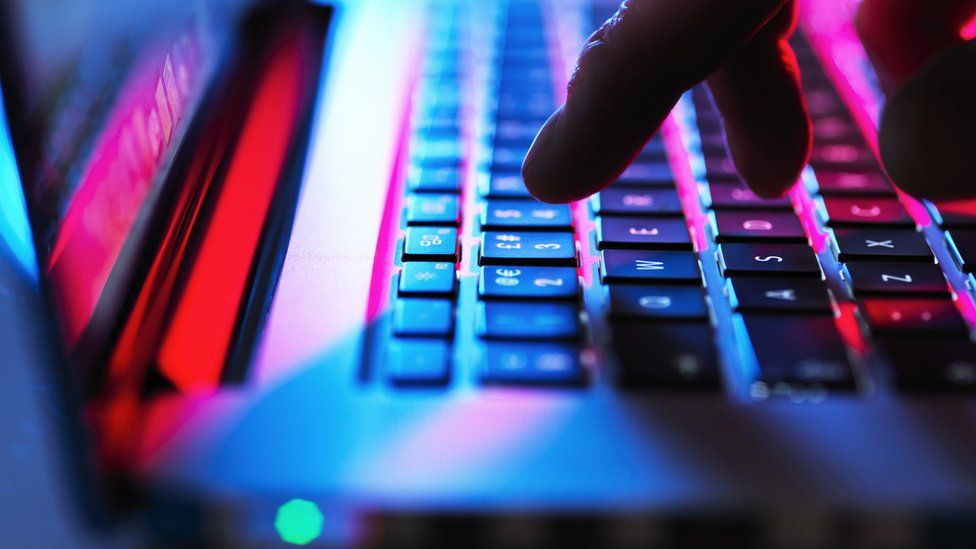
By Christy Cooney
BBC News
The creation of sexually explicit “deepfake” images is to be made a criminal offence in England and Wales under a new law, the government says.
Under the legislation, anyone making explicit images of an adult without their consent will face a criminal record and unlimited fine.
It will apply regardless of whether the creator of an image intended to share it, the Ministry of Justice (MoJ) said.
And if the image is then shared more widely, they could face jail.
A deepfake is an image or video that has been digitally altered with the help of Artificial Intelligence (AI) to replace the face of one person with the face of another.
Recent years have seen the growing use of the technology to add the faces of celebrities or public figures – most often women – into pornographic films.
Under the Online Safety Act, which was passed last year, the sharing of deepfakes was made illegal.
The new law will make it an offence for someone to create a sexually explicit deepfake – even if they have no intention to share it but “purely want to cause alarm, humiliation, or distress to the victim”, the MoJ said.
It will apply to images of adults, because the law already covers this behaviour where the image is of a child, the MoJ said.
It will be introduced as an amendment to the Criminal Justice Bill, which is currently making its way through Parliament.
Minister for Victims and Safeguarding Laura Farris said the new law would send a “crystal clear message that making this material is immoral, often misogynistic, and a crime”.
“The creation of deepfake sexual images is despicable and completely unacceptable irrespective of whether the image is shared,” she said.
“It is another example of ways in which certain people seek to degrade and dehumanise others – especially women.
“And it has the capacity to cause catastrophic consequences if the material is shared more widely. This Government will not tolerate it.”
Cally Jane Beech, a former Love Island contestant who earlier this year was the victim of deepfake images, said the law was a “huge step in further strengthening of the laws around deepfakes to better protect women”.
“What I endured went beyond embarrassment or inconvenience,” she said.
“Too many women continue to have their privacy, dignity, and identity compromised by malicious individuals in this way and it has to stop. People who do this need to be held accountable.”
Shadow home secretary Yvette Cooper described the creation of the images as a “gross violation” of a person’s autonomy and privacy and said it “must not be tolerated”.
“Technology is increasingly being manipulated to manufacture misogynistic content and is emboldening perpetrators of Violence Against Women and Girls,” she said.
“That’s why it is vital for the Government to get ahead of these fast-changing threats and not to be outpaced by them.
“It’s essential that the police and prosecutors are equipped with the training and tools required to rigorously enforce these laws in order to stop perpetrators from acting with impunity.”








